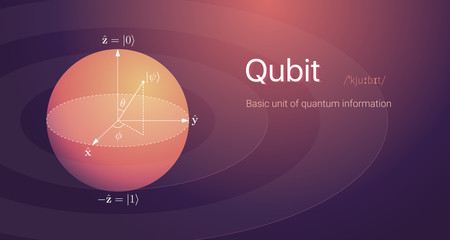Let's Discuss
Enquire NowThe computing technology industry has seen some incredible advancements over the years, but arguably none of them is as groundbreaking as the advent of quantum computers. Recently, quantum computing has gained a lot of momentum. What if I say quantum computing has a promising future in real-world applications? Here’s why.

To begin with, let me introduce you to the concept of quantum computing.
Quantum computing is a rapidly emerging field of technology with the potential to revolutionize the computing industry. Quantum computers represent a paradigm shift in technology, using the principles of quantum mechanics rather than Boolean logic that traditional computers employed, resulting in high speed and unparalleled processing power. These computers are usually seen as a concept straight out of science fiction, but their potential to revolutionize mathematics is undeniable. It is said to accomplish tasks that were previously believed to take billions of years to compute.
Quantum computers
Quantum computers use quantum bits, or qubits, as the basic unit of quantum information. Qubits are two-state quantum systems that exist in superposition and can be used to store and process data. Unlike traditional computing systems, which store information as either a 0 or a 1, qubits can store information as a 0, a 1, or both at the same time.

This allows quantum computers to tackle complex problems that would require an unimaginable amount of time for traditional computers to solve.
What makes it a game-changer?
Quantum computing provides a number of advantages, from faster speeds to enhanced memory capability. One of the most exciting benefits of quantum computing lies in its ability to process and store quantum information quickly and efficiently, which in turn allows for new and interesting solutions to complex problems. Researchers say that quantum computers can, in some instances, find solutions to problems exponentially faster than traditional computers. Additionally, quantum computing allows for increased accuracy in executing a variety of computational tasks, including deep learning and cryptography. Furthermore, quantum computing can improve the performance of machine learning algorithms and enable new research in areas such as artificial intelligence and quantum chemistry. Overall, quantum computing has the potential to provide a number of significant advances within its various applications.
Could quantum computing be the future?
Quantum computing has long been proposed as the future of computing, but many experts view it as a potential waste of time and resources. Due to the complex nature of quantum computing, it is difficult to create large-scale quantum machines and requires large investments of money and resources to design quantum algorithms, maintain quantum hardware, and process data. Additionally, many engineers need to be trained to understand the intricacies of quantum algorithms and engineering which can be a major source of overhead. This makes quantum computing impractical to implement in all but the most advanced organizations, making its usefulness for day-to-day computing limited.
Despite its limitations and difficulties, it is expected to leap into the mainstream in the next 5-10 years, and its integration into artificial intelligence will produce more powerful technology.If you have any projects regarding the above, contact us.
Disclaimer: The opinions expressed in this article are those of the author(s) and do not necessarily reflect the positions of Dexlock.



